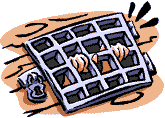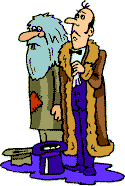READINGS
Lee el texto:
There was no possibility of taking a walk that day. We had been wandering, indeed, in the leafless shrubbery an hour in the morning; but since dinner (Mrs. Reed, when there was no company, dined early) the cold winter wind had brought with it clouds so sombre, and a rain so penetrating, that further out-door exercise was now out of the question.
I was glad of it: I never liked long walks, especially on chilly afternoons: dreadful to me was the coming home in the raw twilight, with nipped fingers and toes, and a heart saddened by the chidings of Bessie, the nurse, and humbled by the consciousness of my physical inferiority to Eliza, John, and Georgiana Reed.
afternoons: dreadful to me was the coming home in the raw twilight, with nipped fingers and toes, and a heart saddened by the chidings of Bessie, the nurse, and humbled by the consciousness of my physical inferiority to Eliza, John, and Georgiana Reed.
The said Eliza, John, and Georgiana were now clustered round their mama in the drawing-room: she lay reclined on a sofa by the fireside, and with her darlings about her (for the time neither quarrelling nor crying) looked perfectly happy. Me, she had dispensed from joining the group; saying, "She regretted to be under the necessity of keeping me at a distance; but that until she heard from Bessie, and could discover by her own observation, that I was endeavouring in good earnest to acquire a more sociable and childlike disposition, a more attractive and sprightly manner --something lighter, franker, more natural, as it were-- she really must exclude me from privileges intended only for contented, happy, little children."
"What does Bessie say I have done?" I asked.
"Jane, I don't like cavillers or questioners; besides, there is something truly forbidding in a child taking up her elders in that manner. Be seated somewhere; and until you can speak pleasantly, remain silent."
A breakfast-room adjoined the drawing-room, I slipped in there. It contained a bookcase: I soon possessed myself of a volume, taking care that it should be one stored with pictures. I mounted into the window-seat: gathering up my feet, I sat cross-legged, like a Turk; and, having drawn the red moreen curtain nearly close, I was shrined in double retirement.
Folds of scarlet drapery shut in my view to the right hand; to the left were the clear panes of glass, protecting, but not separating me from the drear November day. At intervals, while turning over the leaves of my book, I studied the aspect of that winter afternoon. Afar, it offered a pale blank of mist and cloud; near a scene of wet lawn and storm-beat shrub, with ceaseless rain sweeping away wildly before a long and lamentable blast.
I returned to my book--Bewick's History of British Birds: the letterpress thereof I cared little for, generally speaking; and yet there were certain introductory pages that, child as I was, I could not pass quite as a blank. They were those which treat of the haunts of sea-fowl; of "the solitary rocks and promontories" by them only inhabited; of the coast of Norway, studded with isles from its southern extremity, the Lindeness, or Naze, to the North Cape
DRACULA
Lee el texto:
Just as I had come to this conclusion I heard a heavy step approaching behind the great door, and saw through the chinks the gleam of a coming light. Then there was the sound of rattling chains and the clanking of massive bolts drawn back. A key was turned with the loud grating noise of long disuse, and the great door swung back.
Within, stood a tall old man, clean shaven save for a long white moustache, and clad in black from head to foot, without a single speck of colour about him anywhere. He held in his hand an antique silver lamp, in which the flame burned without a chimney or globe of any kind, throwing long quivering shadows as it flickered in the draught of the open door.
The old man motioned me in with his right hand with a courtly gesture, saying in excellent English, but with a strange intonation.
"Welcome to my house! Enter freely and of your own free will!"
He made no motion of stepping to meet me, but stood like a statue, as though his gesture of welcome had fixed him into stone.
The instant, however, that I had stepped over the threshold, he moved impulsively forward, and holding out his hand grasped mine with a strength which made me wince, an effect which was not lessened by the fact that it seemed cold as ice, more like the hand of a dead than a living man.
Again he said.
"Welcome to my house! Enter freely. Go safely, and leave something of the happiness you bring!" The strength of the handshake was so much akin to that which I had noticed in the driver, whose face I had not seen, that for a moment I doubted if it were not the same person to whom I was speaking.
So to make sure, I said interrogatively, "Count Dracula?" He bowed in a courtly was as he replied, "I am Dracula, and I bid you welcome, Mr. Harker, to my house. Come in, the night air is chill, and you must need to eat and rest." As he was speaking, he put the lamp on a bracket on the wall, and stepping out, took my luggage. He had carried it in before I could forestall him. I protested, but he insisted. "Nay, sir, you are my guest. It is late, and my people are not available.
Let me see to your comfort myself. "He insisted on carrying my traps along the passage, and then up a great winding stair, and along another great passage, on whose stone floor our steps rang heavily.
At the end of this he threw open a heavy door, and I rejoiced to see within a well-lit room in which a table was spread for supper, and on whose mighty hearth a great fire of logs, freshly replenished, flamed and flared.
The Count halted, putting down my bags, closed the door, and crossing the room, opened another door, which led into a small octagonal room lit by a single lamp, and seemingly without a window of any sort. Passing through this, he opened another door, and motioned me to enter. It was a welcome sight. For here was a great bedroom well lighted and warmed with another log fire, also added to but lately, for the top logs were fresh, which sent a hollow roar up the wide chimney. The Count himself left my luggage inside and withdrew, saying, before he closed the door.
"You will need, after your journey, to refresh yourself by making your toilet. I trust you will find all you wish. When you are ready, come into the other room, where you will find your supper prepared."
The light and warmth and the Count's courteous welcome seemed to have dissipated all my doubts and fears. Having then reached my normal state, I discovered that I was half famished with hunger. So making a hasty toilet, I went into the other room.
THE PRISONER OF ZENDA
Lee el texto:
It was a maxim of my Uncle William's that no man should pass through Paris without spending four-and-twenty hours there.
My uncle spoke out of a ripe experience of the world, and I honoured his advice by putting up for a day and a night at "The Continental" on my way to--the Tyrol. I called on George Featherly at the Embassy, and we had a bit of dinner together at Durand's, and afterwards dropped in to the Opera; and after that we had a little supper, and after that we called on Bertram Bertrand, a versifier of some repute and Paris correspondent to The Critic. He had a very comfortable suite of rooms, and we found some pleasant fellows smoking and talking. It struck me, however, that Bertram himself was absent and in low spirits, and when everybody except ourselves had gone, I rallied him on his moping preoccupation. He fenced with me for a while, but at last, flinging himself on a sofa, he exclaimed:
"Very well; have it your own way. I am in love--infernally in love!"
"Oh, you'll write the better poetry," said I, by way of consolation.
He ruffled his hair with his hand and smoked furiously. George Featherly, standing with his back to the mantelpiece, smiled unkindly.
"If it's the old affair," said he, "you may as well throw it up, Bert. She's leaving Paris tomorrow."
"I know that," snapped Bertram.
"Not that it would make any difference if she stayed," pursued the relentless George. "She flies higher than the paper trade, my boy!"
"Hang her!" said Bertram.
"It would make it more interesting for me," I ventured to observe, "if I knew who you were talking about."
"Antoinette Mauban," said George.
"De Mauban," growled Bertram.
"Oho!" said I, passing by the question of the `de'. "You don't mean to say, Bert--?"
"Can't you let me alone?"
"Where's she going to?" I asked, for the lady was something of a celebrity.
George jingled his money, smiled cruelly at poor Bertram, and answered pleasantly:
"Nobody knows. By the way, Bert, I met a great man at her house the other night--at least, about a month ago. Did you ever meet him--the Duke of Strelsau?"
"Yes, I did," growled Bertram.
"An extremely accomplished man, I thought him."
It was not hard to see that George's references to the duke were intended to aggravate poor Bertram's sufferings, so that I drew the inference that the duke had distinguished Madame de Mauban by his attentions. She was a widow, rich, handsome, and, according to repute, ambitious. It was quite possible that she, as George put it, was flying as high as a personage who was everything he could be, short of enjoying strictly royal rank: for the duke was the son of the late King of Ruritania by a second and morganatic marriage, and half-brother to the new King. He had been his father's favourite, and it had occasioned some unfavourable comment when he had been created a duke, with a title derived from no less a city than the capital itself. His mother had been of good, but not exalted, birth.
THE PRINCE AND THE PAUPER
LEE EL TEXTO:
Tom was conducted to the principal apartment of a noble suite, and made to sit down--a thing which he was loth to do, since there were elderly men and men of high degree about him. He begged them to be seated also, but they only bowed their thanks or murmured them, and remained standing. He would have insisted, but his 'uncle' the Earl of Hertford whispered in his ear--
"Prithee, insist not, my lord; it is not meet that they sit in thy presence."
The Lord St. John was announced, and after making obeisance to Tom, he said--
"I come upon the King's errand, concerning a matter which requireth privacy. Will it please your royal highness to dismiss all that attend you here, save my lord the Earl of Hertford?"
Observing that Tom did not seem to know how to proceed, Hertford whispered him to make a sign with his hand, and not trouble himself to speak unless he chose. When the waiting gentlemen had retired, Lord St. John said--
"His majesty commandeth, that for due and weighty reasons of state, the prince's grace shall hide his infirmity in all ways that be within his power, till it be passed and he be as he was before. To wit, that he shall deny to none that he is the true prince, and heir to England's greatness; that he shall uphold his princely dignity, and shall receive, without word or sign of protest, that reverence and observance which unto it do appertain of right and ancient usage; that he shall cease to speak to any of that lowly birth and life his malady hath conjured out of the unwholesome imaginings of o'er-wrought fancy; that he shall strive with diligence to bring unto his memory again those faces which he was wont to know--and where he faileth he shall hold his peace, neither betraying by semblance of surprise or other sign that he hath forgot; that upon occasions of state, whensoever any matter shall perplex him as to the thing he should do or the utterance he should make, he shall show nought of unrest to the curious that look on, but take advice in that matter of the Lord Hertford, or my humble self, which are commanded of the King to be upon this service and close at call, till this commandment be dissolved. Thus saith the King's majesty, who sendeth greeting to your royal highness, and prayeth that God will of His mercy quickly heal you and have you now and ever in His holy keeping."
The Lord St. John made reverence and stood aside. Tom replied resignedly--
"The King hath said it. None may palter with the King's command, or fit it to his ease, where it doth chafe, with deft evasions. The King shall be obeyed."
Lord Hertford said--
"Touching the King's majesty's ordainment concerning books and such like serious matters, it may peradventure please your highness to ease your time with lightsome entertainment, lest you go wearied to the banquet and suffer harm thereby."
Tom's face showed inquiring surprise; and a blush followed when he saw Lord St. John's eyes bent sorrowfully upon him. His lordship said--
"Thy memory still wrongeth thee, and thou hast shown surprise--but suffer it not to trouble thee, for 'tis a matter that will not bide, but depart with thy mending malady. My Lord of Hertford speaketh of the city's banquet which the King's majesty did promise, some two months flown, your highness should attend. Thou recallest it now?"
"It grieves me to confess it had indeed escaped me," said Tom, in a hesitating voice; and blushed again.
THE JUNGLE BOOK
Lee el texto:
It was seven o'clock of a very warm evening in the Seeonee hills when Father Wolf woke up from his day's rest, scratched himself, yawned, and spread out his paws one after the other to get rid of the sleepy feeling in their tips. Mother Wolf lay with her big gray nose dropped across her four tumbling, squealing cubs, and the moon shone into the mouth of the cave where they all lived.
"Augrh!" said Father Wolf. "It is time to hunt again." He was going to spring down hill when a little shadow with a bushy tail crossed the threshold and whined: "Good luck go with you, O Chief of the Wolves. And good luck and strong white teeth go with noble children that they may never forget the hungry in this world."
little shadow with a bushy tail crossed the threshold and whined: "Good luck go with you, O Chief of the Wolves. And good luck and strong white teeth go with noble children that they may never forget the hungry in this world."
It was the jackal--Tabaqui, the Dish-licker--and the wolves of India despise Tabaqui because he runs about making mischief, and telling tales, and eating rags and pieces of leather from the village rubbish-heaps. But they are afraid of him too, because Tabaqui, more than anyone else in the jungle, is apt to go mad, and then he forgets that he was ever afraid of anyone, and
runs through the forest biting everything in his way. Even the tiger runs and hides when little Tabaqui goes mad, for madness is the most disgraceful thing that can overtake a wild creature. We call it hydrophobia, but they call it dewanee--the madness-- and run.
"Enter, then, and look," said Father Wolf stiffly, "but there is no food here."
"For a wolf, no," said Tabaqui, "but for so mean a person as myself a dry bone is a good feast. Who are we, the Gidur-log [the jackal people], to pick and choose?" He scuttled to the back of the cave, where he found the bone of a buck with some meat on it, and sat cracking the end merrily.
"All thanks for this good meal," he said, licking his lips.
"How beautiful are the noble children! How large are their eyes!
And so young too! Indeed, indeed, I might have remembered that the children of kings are men from the beginning."
Now, Tabaqui knew as well as anyone else that there is nothing so unlucky as to compliment children to their faces. It pleased him to see Mother and Father Wolf look uncomfortable.
Tabaqui sat still, rejoicing in the mischief that he had made, and then he said spitefully:
"Shere Khan, the Big One, has shifted his hunting grounds. He will hunt among these hills for the next moon, so he has told me."
Shere Khan was the tiger who lived near the Waingunga River, twenty miles away.
"He has no right!" Father Wolf began angrily--"By the Law of the Jungle he has no right to change his quarters without due warning. He will frighten every head of game within ten miles, and I--I have to kill for two, these days."
"His mother did not call him Lungri [the Lame One] for nothing," said Mother Wolf quietly. "He has been lame in one foot from his birth. That is why he has only killed cattle. Now the villagers of the Waingunga are angry with him, and he has come here to make our villagers angry. They will scour the jungle for him when he is far away, and we and our children must run when the
grass is set alight. Indeed, we are very grateful to Shere Khan!"
"Shall I tell him of your gratitude?" said Tabaqui.
"Out!" snapped Father Wolf. "Out and hunt with thy master. Thou hast done harm enough for one night."
"I go," said Tabaqui quietly. "Ye can hear Shere Khan below in the thickets. I might have saved myself the message."
Father Wolf listened, and below in the valley that ran down to a little river he heard the dry, angry, snarly, singsong whine of a tiger who has caught othing and does not care if all the jungle knows it.
"The fool!" said Father Wolf. "To begin a night's work with that noise! Does he think that our buck are like his fat Waingunga bullocks?"
"H'sh. It is neither bullock nor buck he hunts to-night," said Mother Wolf. "It is Man."
The whine had changed to a sort of humming purr that seemed to come from every quarter of the compass. It was the noise that bewilders woodcutters and gypsies sleeping in the open, and makes them run sometimes into the very mouth of the tiger.
THE SCARLET LETTER
LEE EL TEXTO:
The founders of a new colony, whatever Utopia of human virtue and happiness they might originally project, have invariably recognised it among their earliest practical necessities to allot a portion of the virgin soil as a cemetery, and another portion as the site of a prison. In accordance with this rule it may safely be assumed that the forefathers of Boston had built the first prison-house somewhere in the Vicinity of Cornhill, almost as seasonably as they marked out the first burial-ground, on Isaac Johnson's lot, and round about his grave, which subsequently became the nucleus of all the congregated sepulchres in the old churchyard of King's Chapel. Certain it is that, some fifteen or twenty years after the settlement of the town, the wooden jail was already marked with weather-stains and other indications of age, which gave a yet darker aspect to its beetle-browed and gloomy front. The rust on the ponderous iron-work of its oaken door looked more antique than anything else in the New World. Like all that pertains to crime, it seemed never to have known a youthful era. Before this ugly edifice, and between it and the wheel-track of the street, was a grass-plot, much overgrown with burdock, pig-weed, apple-pern, and such unsightly vegetation, which evidently found something congenial in the soil that had so early borne the black flower of civilised society, a prison. But on one side of the portal, and rooted almost at the threshold, was a wild rose-hush, covered, in this month of June, with its delicate gems, which might be imagined to offer their fragrance and fragile beauty to the prisoner as he went in, and to the condemned criminal as he came forth to his doom, in token that the deep heart of Nature could pity and be kind to him.
seasonably as they marked out the first burial-ground, on Isaac Johnson's lot, and round about his grave, which subsequently became the nucleus of all the congregated sepulchres in the old churchyard of King's Chapel. Certain it is that, some fifteen or twenty years after the settlement of the town, the wooden jail was already marked with weather-stains and other indications of age, which gave a yet darker aspect to its beetle-browed and gloomy front. The rust on the ponderous iron-work of its oaken door looked more antique than anything else in the New World. Like all that pertains to crime, it seemed never to have known a youthful era. Before this ugly edifice, and between it and the wheel-track of the street, was a grass-plot, much overgrown with burdock, pig-weed, apple-pern, and such unsightly vegetation, which evidently found something congenial in the soil that had so early borne the black flower of civilised society, a prison. But on one side of the portal, and rooted almost at the threshold, was a wild rose-hush, covered, in this month of June, with its delicate gems, which might be imagined to offer their fragrance and fragile beauty to the prisoner as he went in, and to the condemned criminal as he came forth to his doom, in token that the deep heart of Nature could pity and be kind to him.
This rose-bush, by a strange chance, has been kept alive in history; but whether it had merely survived out of the stern old wilderness, so long after the fall of the gigantic pines and oaks that originally overshadowed it, or whether, as there is far authority for believing, it had sprung up under the footsteps of the sainted Ann Hutchinson as she entered the prison-door, we shall not take upon us to determine. Finding it so directly on the threshold of our narrative, which is now about to issue from that inauspicious portal, we could hardly do otherwise than pluck one of its flowers, and present it to the reader. It may serve, let us hope, to symbolise some sweet moral blossom that may be found along the track, or relieve the darkening close of a tale of human frailty and sorrow.
MEMOIRS OF SHERLOCK HOLMES
Lee el texto:
Silver Blaze
"I am afraid, Watson, that I shall have to go," said Holmes, as we sat down together to our breakfast one morning.
"Go! Where to?"
"To Dartmoor; to King's Pyland."
I was not surprised. Indeed, my only wonder was that he had not already been mixed upon this extraordinary case, which was the one topic of conversation through the length and breadth of England. For a whole day my companion had rambled about the room with his chin upon his chest and his brows knitted, charging and recharging his pipe with the strongest black tobacco, and absolutely deaf to any of my questions or remarks.
Fresh editions of every paper had been sent up by our news agent, only to be glanced over and tossed down into a corner. Yet, silent as he was, I knew perfectly well what it was over which he was brooding. There was but one problem before the public which could challenge his powers of analysis, and that was the singular disappearance of the favourite for the Wessex Cup, and the tragic murder of its trainer.
When, therefore, he suddenly announced his intention of setting out for the scene of the drama it was only what I had both expected and hoped for.
"I should be most happy to go down with you if I should not be in the way," said I.
"My dear Watson, you would confer a great favor upon me by coming. And I think that your time will not be misspent, for there are points about the case which promise to make it an absolutely unique one. We have, I think, just time to catch our train at Paddington, and I will go further into the matter upon our journey. You would oblige me by bringing with you your very excellent field-glass."
And so it happened that an hour or so later I found myself in the corner of a first-class carriage flying along en route for Exeter, while Sherlock Holmes, with his sharp, eager face framed in his ear-flapped travelling-cap, dipped rapidly into the bundle of fresh papers which he had procured at Paddington. We had left Reading far behind us before he thrust the last one of them under the seat, and offered me his cigar-case.
"We are going well," said he, looking out the window and glancing at his watch. "Our rate at present is fifty-three and a half miles an hour."
"I have not observed the quarter-mile posts," said I.
"Nor have I. But the telegraph posts upon this line are sixty yards apart, and the calculation is a simple one. I presume that you have looked into this matter of the murder of John Straker and the disappearance of Silver Blaze?"
"I have seen what the Telegraph and the Chronicle have to say."
"It is one of those cases where the art of the reasoner should be used rather for the sifting of details than for the acquiring of fresh evidence. The tragedy has been so uncommon, so complete and of such personal importance to so many people, that we are suffering from a plethora of surmise, conjecture, and hypothesis. The difficulty is to detach the framework of fact--of absolute undeniable fact--from the embellishments of theorists and reporters. Then, having established ourselves upon this sound basis, it is our duty to see what inferences may be drawn and what are the special points upon which the whole mystery turns. On Tuesday evening I received telegrams from both Colonel Ross, the owner of the horse, and from Inspector Gregory, who is looking after the case, inviting my cooperation.


.jpg)






